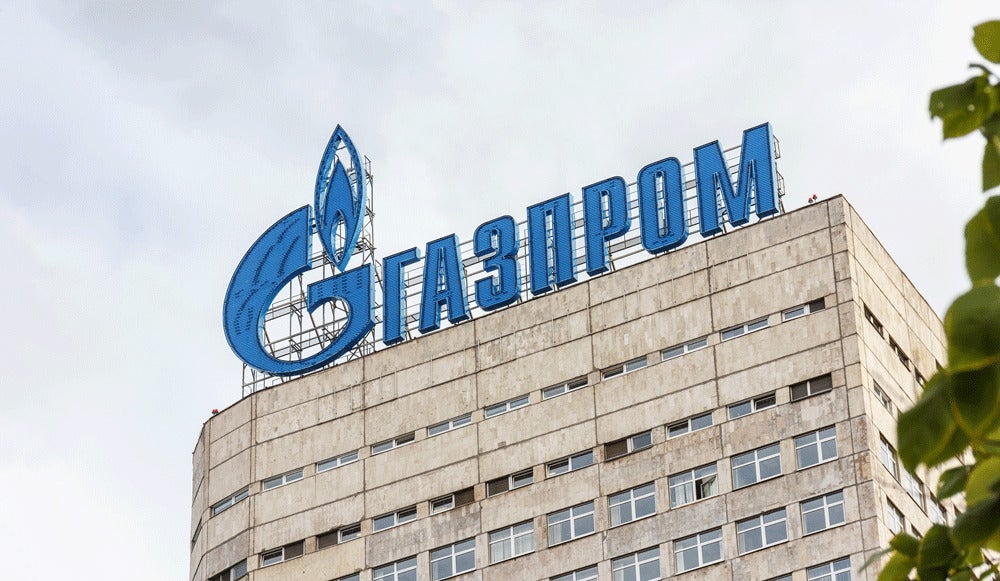
Gas flows from Russia to Europe fell on Wednesday after Shell refused to comply with Gazprom’s payment terms.
Since March, Gazprom has demanded that European energy companies set up rouble-based payment accounts with Russian banks to continue trade on existing energy contracts. On Tuesday, Royal Dutch Shell confirmed that it would not do this, as part of its withdrawal from Russia.

Discover B2B Marketing That Performs
Combine business intelligence and editorial excellence to reach engaged professionals across 36 leading media platforms.
Gazprom has now followed through on its threat by decreasing gas flows into Shell’s German facilities. German energy regulator Bundesnetzagentur has said that the reductions will have minimal impact in the country.
Shell initially faced criticism for its slow withdrawal from Russian projects. It has now withdrawn staff from the country and agreed to sell its Russian retail and lubricant businesses to Lukoil.
Gazprom also cut off gas supplies to Denmark’s Ørsted on Wednesday morning after the company refused to pay in roubles. Ørsted group president and CEO Mads Nipper said: “We stand firm in our refusal to pay in roubles, and we’ve been preparing for this scenario, so we still expect to be able to supply gas to our customers. The situation underpins the need for the EU to become independent of Russian gas by accelerating the build-out of renewable energy.”
At the same time, gas flows from Germany to Poland have fallen by more than one-third. Polish authorities have said this stems purely from reduced demand on the pipeline. Gas pipeline flows from Russia to Slovakia have also decreased.

US Tariffs are shifting - will you react or anticipate?
Don’t let policy changes catch you off guard. Stay proactive with real-time data and expert analysis.
By GlobalDataThis follows cuts to gas exports for Netherlands gas wholelsaler GasTerra earlier this week. In a statement, GasTerra said that it had “decided not to comply with Gazprom’s one-sided payment requirements”. The company cited sanctions and risks in the proposed payment routes in its reasoning.
This decision prevented the trade of approximately two billion cubic metres of gas imports specified by the contract, which lasted until the start of October. GasTerra has said it anticipated the cut-off and has sourced gas from other providers to cover the shortfall.
Also this week, EU countries agreed in principle to reduce trade for Russian oil by 90% by the end of 2022. Central European countries, most notably Hungary, had objected to the proposed measures due to their reliance on Russian energy imports. However, the countries have now agreed to exempt pipeline imports from the ban temporarily in order to reach an agreement.
Earlier in the month, Russia’s RAO Nordic ended electricity exports to Finnish transmission grid operator Fingrid. Both sides acknowledged that Fingrid had not paid for energy in any currency.





